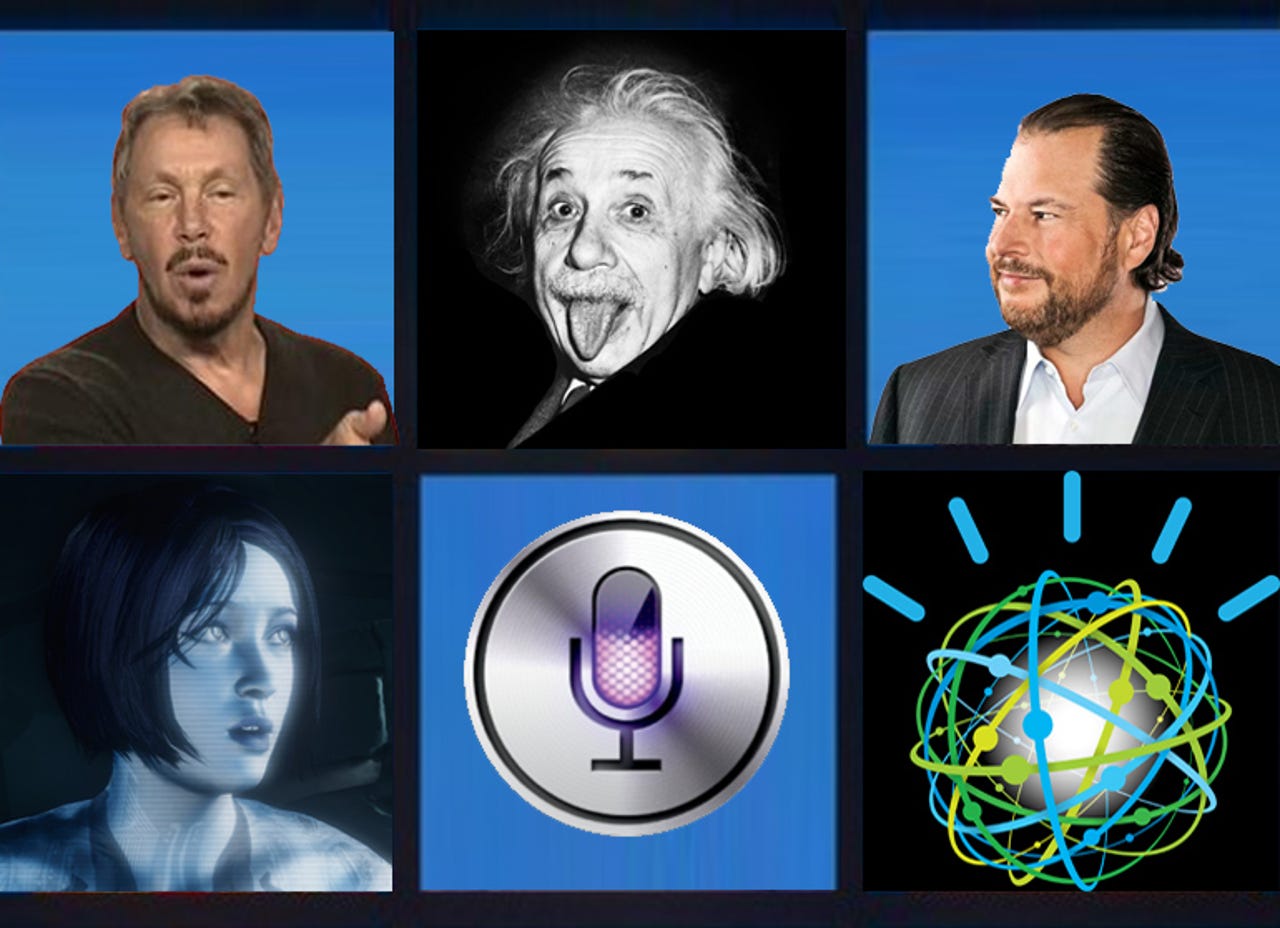Oracle and Salesforce and IBM? Oh my! Here comes AI sprawl


Business tech companies are going to get an overdose of AI marketing.
Your friendly neighborhood enterprise software provider has a window into much of your corporate data. And now it wants to provide you with artificial intelligence-fueled insights in what'll equate to a barrage of characters -- Watson, Einstein, Alexa, Siri, Cortana -- a lot of jargon and with any luck some actual automated digital processes.
Rest assured you may wind up with the former before getting to the latter destination.
As if you needed a sledgehammer to hit you over the head to highlight the AI trend consider Salesforce's Einstein walkthrough and how it was timed for Oracle CTO Larry Ellison's keynote at OpenWorld in San Francisco.
Salesforce is hoping to use all of the CRM data coursing through it and other touch points to launch Einstein, an AI platform, in the background. The idea is that we'll all be data scientists.
Almost on cue, Ellison noted that Oracle has as much consumer data in it as Facebook. Ellison argues that you can't have intelligent applications or cloud tools without data. Enter data-as-a-service -- powered with acquired digital marketing and information markets such as BlueKai -- and a play to make all applications intelligent.
Ellison said:
There are two big databases that keep track of consumers, if you will, and have a lot of information about consumers. One is very famous. It's called Facebook. The other one is less well known. It's Oracle's Data Cloud. We actually have more consumers in our data cloud than they have in theirs.
Hours later Oracle outlined a strategy to combine third-party data, corporate data, and behavioral analytics with its applications covering most business functions. These next-gen cloud offerings from Oracle are dubbed Adaptive Intelligent Applications and use Oracle's Data Cloud, a collection of more than 5 billion consumer and business profiles. Not surprisingly, Oracle's database will be the central point to this data buffet.
Oracle sees finance, human resources, marketing teams, and supply chain managers all tapping into its data cloud.
Keep in mind that every cloud vendor is talking analytics, machine learning, and insights. SAP, Workday and many companies have gone that way. Microsoft's Azure has multiple hooks into AI and machine learning. Facebook and Google have made AI and machine learning commonplace behind the scenes.
But with the launch of Salesforce's Einstein and Oracle's strategy AI and machine learning are going to be terms used everywhere among corporations. If business technology leaders weren't being asked about their AI strategies yesterday they will be today. AI and machine learning could become a boardroom issue in short order. Hey CIO, what's our AI strategy?
Data paves the way for AI. AI paves the way for more workforce automation. Automation, robots, and the digital workforce allows for lower costs, fewer humans, and easier scaling.
What's unclear is whether there's an advantage to actually having the applications that house corporate data -- Oracle's intelligent apps connected to its database and SAP's ERP data with HANA. Perhaps the best approach is to use AI and machine learning to tap into multiple systems. Despite every tech vendor speech about one stack (theirs) it's a world of multiple systems. Salesforce's Einstein can only go so far. Oracle's intelligence may not be of much use for your SAP system.
IBM's Watson unit is acquiring data with acquisitions such as the B2B arm of the Weather Company, but also focusing on sucking in data from everywhere. Last week, I caught up with Harriet Green, general manager of IBM Watson Internet of Things, Commerce and Education, to talk shop.
See also: Olli: The self-driving bus with IBM Watson onboard | IBM's Watson enters drone business courtesy of deal with Aerialtronics
She said IBM and Watson IoT is focused on building out the ecosystem and teaching Watson to comb through data that's structured and unstructured. "We are creating so much data and there's no capability to quickly reason and correlate it in natural language," said Green. "Watson is solving a fundamental problem."
Blue Prism, a robot process automation company based in London, is a bit more granular, but the idea previews what Salesforce, Oracle, and others will ultimately do -- automate work. Blue Prism is an IBM partner and a company worth watching.
"Robot process automation (RPA) sits there and replaces human middleware," explained Blue Prism CEO Alastair Bathgate in an interview in New York. "If you have 2,000 legacy systems nobody is going to take the time to flatten all of those systems out," said Bathgate. "Robotic automation is something you can't see on screen. It replicates what a human would have done."
Bathgate said robots won't replace human labor but supplement it over time. "Human beings to AI is not the right step. You need digital employees first," said Bathgate. "RPA is the best use of AI right now in the enterprise."
Here's the bottom line: Business tech companies are going to get an overdose of AI marketing. The best course is going to be to step back and think holistically and outline how automation, AI, and your corporate systems will blend together. Otherwise, we're going to enter the age of AI sprawl pretty quickly.